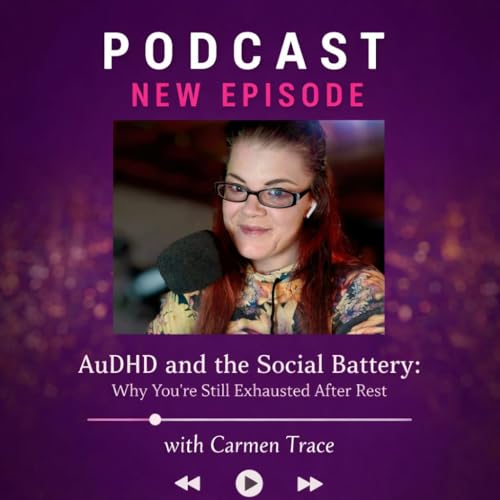🎙️ Episode Title: Too Positive? Deep Dive on Toxic Positivity – Part 1 💥 Podcast: Authentically ADHD with Carmen
Episode Summary: In this powerful Part 1 episode, Carmen unpacks the surprisingly harmful impact of toxic positivity—that relentless “good vibes only” energy that floods our feeds and conversations but often leaves us feeling invalidated, misunderstood, or just plain unseen.
We’re diving deep into what toxic positivity really is (spoiler: it’s not the same as genuine optimism), how it shows up in everyday life, and why it’s especially harmful for ADHD brains that already struggle with emotional regulation, rejection sensitivity, and internalized shame.
Carmen explores the science behind emotional suppression vs. expression, using insights from trauma-informed therapy, positive psychology, and mindfulness-based neuroscience to help explain how this "be happy no matter what" mindset actually increases stress, shame, and even physical health risks. Plus, she digs into how society, culture, and even the self-help world contribute to the rise of this positivity pressure—and why folks with ADHD often bear the brunt of it.
👀 Expect real talk, research-backed breakdowns, and compassionate call-outs like:
* 🚫 “Your feelings make me uncomfortable.”
* 🚫 “Let’s spiritually bypass our way out of this.”
* 🚫 “If you’re not smiling, you’re failing.”
Whether you’ve been on the receiving end of these vibes, or accidentally sent them yourself (we all have!), this episode gives you the language, validation, and science to understand why it feels so wrong—and what to do about it.
✨ Stick around for Part 2, where we’ll dive into actionable strategies to replace performative positivity with authentic, grounded emotional support—for yourself and others.
@authenticallyadhd_podcast
Follow me:
Linktree:
https://linktr.ee/carmen_irace
Join Focused: https://ihaveadhdllc.ontralink.com/t?orid=29951&opid=1
Get full access to carmen_authenticallyadhd at carmenauthenticallyadhd.substack.com/subscribe
 47 分
47 分 32 分
32 分 32 分
32 分 30 分
30 分 31 分
31 分 1 時間 1 分
1 時間 1 分 36 分
36 分 2025/08/1434 分
2025/08/1434 分
